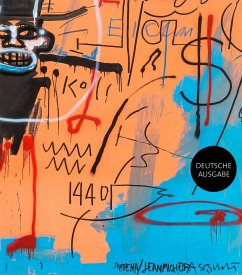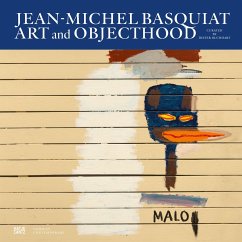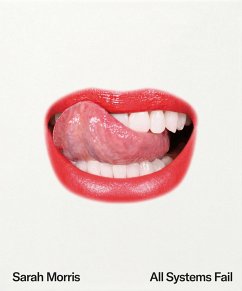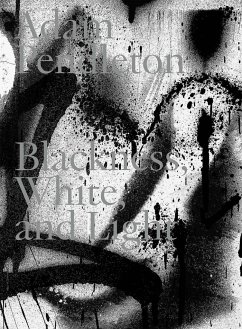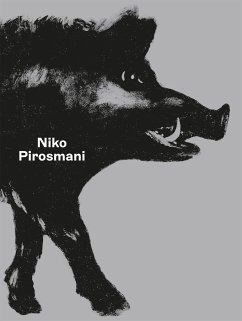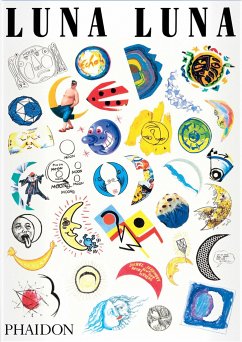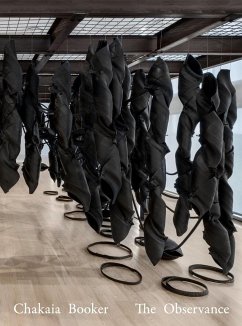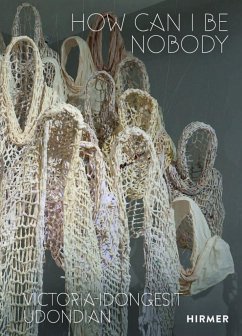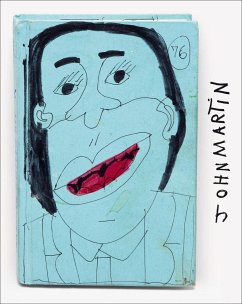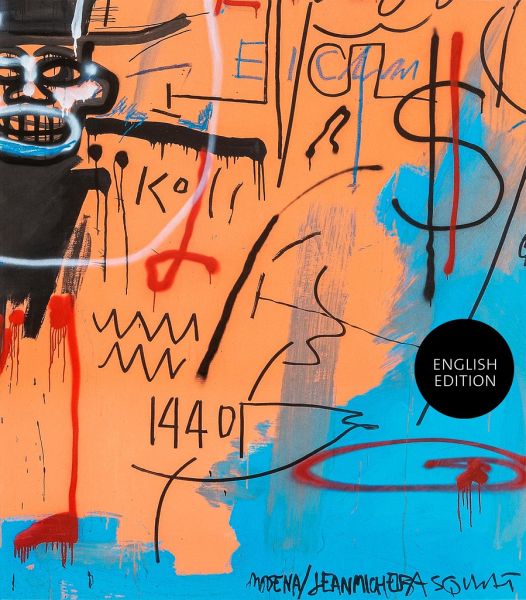
Basquiat
The Modena Paintings
Herausgegeben: Iris Hasler und Sam Keller für die Fondation Beyeler;Mitarbeit: Steinegger, Christoph; Basquiat, Jean-Michel
Versandkostenfrei!
Sofort lieferbar
25,99 €
inkl. MwSt.

PAYBACK Punkte
13 °P sammeln!
Numerous publications and exhibitions have examined Jean-Michel Basquiat's extensive oeuvre that consists of more than 3000 works. This catalogue, however, focuses on eight paintings: In the summer of 1982, Basquiat traveled to Modena, Italy, for one of his first solo exhibitions in Europe at the gallery of Emilio Mazzoli. Within just a few days, he painted a group of large-format paintings that surpassed his previous work not only in terms of their scale. Each at least two by four meters in size, they mark his transition from graffiti spraying in the streets of Manhattan to painting on canvas...
Numerous publications and exhibitions have examined Jean-Michel Basquiat's extensive oeuvre that consists of more than 3000 works. This catalogue, however, focuses on eight paintings: In the summer of 1982, Basquiat traveled to Modena, Italy, for one of his first solo exhibitions in Europe at the gallery of Emilio Mazzoli. Within just a few days, he painted a group of large-format paintings that surpassed his previous work not only in terms of their scale. Each at least two by four meters in size, they mark his transition from graffiti spraying in the streets of Manhattan to painting on canvas. At the same time, they reflect an artist coming into his own. The paintings including masterpieces that today are considered pivotal and among the most outstanding of his oeuvre have never been shown together. This catalogue revisits this crucial moment of Basquiat's career some 40 years ago and reunites them for the first time.
JEAN-MICHEL BASQUIAT (1960-1988, New York) is one of the most important artists of the 20th century. Emerging from the underground post-punk scene in Lower Manhattan, he attracted the attention of the art world in 1981 with the legendary group exhibition New York/New Wave. In nine prolific years, he created an oeuvre that formulated a new visual language of raw gestural painting fused with dense writing, and repeatedly reflected the oppression, exclusion and exploitation of People of Color.
JEAN-MICHEL BASQUIAT (1960-1988, New York) is one of the most important artists of the 20th century. Emerging from the underground post-punk scene in Lower Manhattan, he attracted the attention of the art world in 1981 with the legendary group exhibition New York/New Wave. In nine prolific years, he created an oeuvre that formulated a new visual language of raw gestural painting fused with dense writing, and repeatedly reflected the oppression, exclusion and exploitation of People of Color.

























